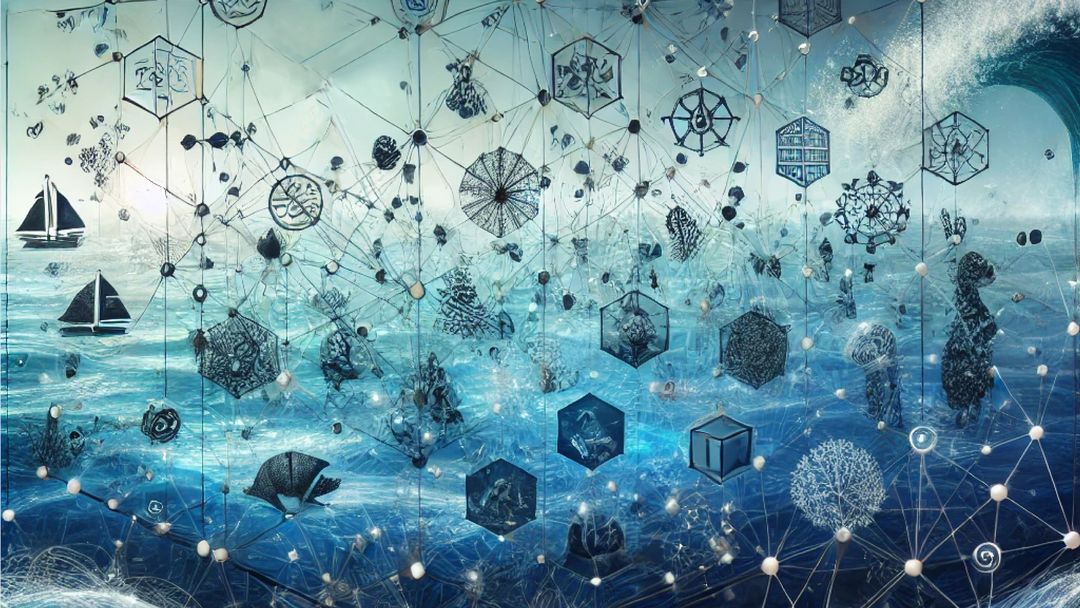The digital information portal ‘Meere Online’ (Seas Online) offers information from science for anyone interested in coasts, seas, and oceans: knowledge for sustainable action to better protect the seas and make their treatment by humans more sustainable. The web portal networks and bundles the expertise of German marine research and offers comprehensible specialist knowledge as a basis for decision-making for politics, administration, business, and civil society.
“The sea is essential for our survival. Our aim must therefore be to manage our coasts, seas and oceans more sustainably. Knowledge gained from research is the key to achieving this,’ explains Dr Joachim Harms, Chairman of the Board of DAM. ‘With its current 25 member institutions, DAM combines a broad spectrum of scientific research – from marine to coastal to polar research. The information portals ‘Interaktiver Weltozean’ and Meere Online’ now make the combined expertise of German marine research available in a user-friendly and generally understandable way as a basis for political and social decisions.”
An AI-supported semantic search function developed by the German Research Center for Artificial Intelligence (DFKI) has been integrated into ‘Meere Online’. Through the cooperation with the “Informationsdienst Wissenschaft (idw)”, reports on marine research from the idw source can also be searched thematically.
Prof. Dr Günter Neumann, head of the DFKI research group Question Answering and Information Extraction (QAIE): "We are pleased that our semantic search technologies, which are already being used successfully by the idw information service, can now also be made available for topic-based search and exploration in the new DAM portal.’
The technology has been developed since 2019 in the joint project ‘Semantic Search for Science Communication (3SC)’ by DFKI and idw and has been used at idw since 2022. The search engine facilitates content discovery for users and supports content networking. Unlike a keyword-based search, the semantic search engine considers the complete content of the documents. The system acts as a discovery tool and, in response to a news item, article or document, tracks down further thematically relevant content. This even works if the connecting topic – for example, ‘ocean warming’ or ‘microplastics’ – does not appear in the texts conceptually. The semantic search engine is the “Generalized Semantics Search Engine (GSNE)” developed by Prof. Günter Neumann of the DFKI research group QAIE (Question Answering and Information Extraction). GSNE identifies and evaluates the semantic similarity of documents. In addition to idw, “Meere Online” is the second knowledge portal that uses the semantic search engine developed at DFKI.
Both “Interaktiver Weltozean” and “Meere online” are part of DAM’s transfer activities, which is funded by the Federal Ministry of Education and Research (BMBF) and the northern German states of Bremen, Hamburg, Mecklenburg-Western Pomerania, Lower Saxony and Schleswig-Holstein. Both portals are official contributions to the UN Ocean Decade and the EU mission Restore our Ocean and Waters. At the DAM, the two digital transfer offerings are complemented by dialogue formats for politics, stakeholders and society, as well as further measures of transfer and science communication.
The German Marine Research Alliance (DAM) connects 25 leading German marine research institutions and cooperates with strategic partners to strengthen the sustainable use of coasts, seas and oceans. To this end, DAM works with its member institutions to develop solution-oriented knowledge and communicates options for action in politics, business and civil society. It is funded by the federal government and the northern German states of Bremen, Hamburg, Mecklenburg-Western Pomerania, Lower Saxony and Schleswig-Holstein. Further information: www.allianz-meeresforschung.de.
The German Research Center for Artificial Intelligence (DFKI) has operated as a non-profit, Public-Private-Partnership (PPP) since 1988. Today, it maintains sites in Kaiserslautern, Saarbrücken, Bremen, Niedersachsen, laboratories in Berlin, Darmstadt, and Lübeck, as well as a branch office in Trier. DFKI combines scientific excellence and commercially-oriented value creation with social awareness and is recognized as a major "Center of Excellence" by the international scientific community. In the field of artificial intelligence, DFKI has focused on the goal of human-centric AI for more than 35 years. Research is committed to essential, future-oriented areas of application and socially relevant topics. Currently, with a staff of about 1,560 employees from more than 76 countries, DFKI is developing the innovative software technologies of tomorrow.

